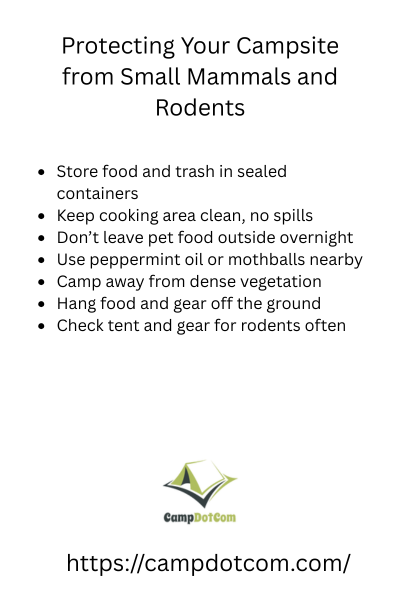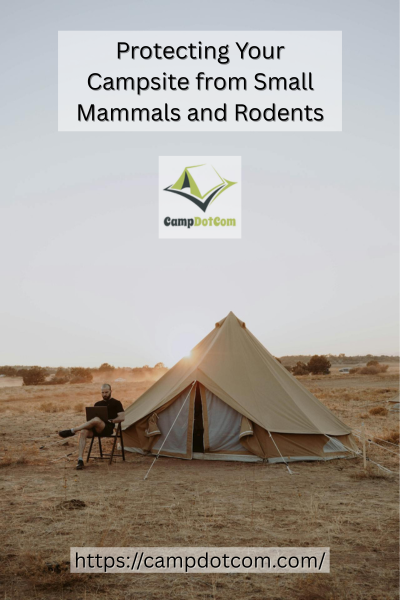Protecting your campsite from ants, wasps, and other insects isn’t just about comfort—it’s about keeping your trip from turning into a bug-filled disaster. Nothing ruins that first sip of morning coffee like a wasp circling your face or an ant line marching through your snack stash.
Read More About Protecting Your Campsite from Ants, Wasps, and Other Insects

Why Bugs Love Campsites
It’s pretty simple: you have food, warmth, and sometimes even light. For ants, your campsite feels like a fancy all you can eat buffet. Wasps are looking for sweets, protein, and sometimes just a cozy spot to relax. And mosquitoes well they show up like guests who were not invited and never want to leave.
One time I camped near a lake thinking the breeze would keep the bugs away. That was a big mistake. By sunset it felt like I had opened a full insect restaurant. Ants got into my bread bag, wasps buzzed around our lunch table, and mosquitoes were testing both my patience and my bug spray. I definitely learned that stopping bugs before they arrive is way better than trying to swat them away later.
As an Amazon Associate, I earn from qualifying purchases. Some of the links in this article are affiliate links. This means that, at zero cost to you, I will earn an affiliate commission if you click through the link and finalize a purchase.
More Things to Know About Protecting Your Campsite from Ants, Wasps, and Other Insects

Keep Your Food Secure
If you take away the bugs’ main attraction—your food—you’ll win half the battle. Store everything in sealed containers or coolers with tight lids. Avoid leaving crumbs, wrappers, or food scraps lying around.
And here’s a tip I swear by: keep your cooking area separate from your sleeping area. Not only does this reduce the chances of midnight raids by ants and wasps, but it also helps keep your tent smelling less like a diner.
Clean Up Right After Eating
I know—when you’ve just finished cooking over the fire, the last thing you want to do is wash dishes. But trust me, letting them sit is an open invitation to ants and other insects. Wipe down tables, pack up leftovers, and wash utensils right away. Even a tiny bit of syrup on a fork can bring wasps from who-knows-where.
Once, I thought I could leave my pancake pan to “soak” overnight. By morning, it was more like an ant conference. Lesson learned.
Be Smart with Trash
Your trash is just as attractive to insects as your food. Use strong garbage bags, tie them securely, and keep them away from your main camping area. If the campground has a wildlife resistant bin, it’s best to store your trash there.
When you are backcountry camping, hang your trash from a tree branch at least ten feet above the ground. It might take a little extra effort, but it is much better than waking up to a swarm of wasps around your breakfast spot.
Choose Your Campsite Wisely
Location matters more than you might think when it comes to protecting your campsite from ants, wasps, and other insects. Avoid pitching your tent near standing water, ant hills, or obvious wasp nests. If you see a steady line of ants or hear that telltale wasp buzz, pick a different spot.
Also, pay attention to the wind. A gentle breeze can help keep flying insects at bay, especially in the evening.
Natural Deterrents That Actually Work
I’m not talking about magic bug free promises you see online. I’m sharing just a few simple and reliable tricks. For example, placing citrus peels around your picnic table can keep ants away. Wasps really do not like cucumber peels. And if mosquitoes are your main problem, burning a bit of sage in your campfire can help.
I like to pack a small spray bottle of vinegar and water. It is safe, inexpensive, and works as a quick surface wipe to keep ants from coming back to the same spot.
Dress for Bug Defense
When the weather is warm, it’s easy to want to wear shorts and a tank top. But wearing lightweight shirts with long sleeves and pants can really help keep bugs away from your skin. Plus, it helps protect you from getting sunburned.
If you tend to attract bugs like I do, try tucking your pants into your socks when you walk through tall grass. It might not be the most stylish look, but it sure beats having ticks or ants crawling up your legs.
Keep Calm Around Wasps
This is easier said than done, I know. But wasps are more likely to sting if they feel threatened. If one hovers around you, stay still or slowly walk away instead of swatting wildly. I once made the mistake of swatting at a wasp over my sandwich—it turned into a “wasp plus friends” situation real quick.
The Best Ways to Avoid Insects While Camping This Season
The key to protecting your campsite from ants, wasps, and other insects is preparation and a little vigilance. Keep your food sealed, clean up promptly, and be smart about where you camp. A few simple habits can mean the difference between a relaxing getaway and spending the weekend as the main course at Bug Fest 2025.
